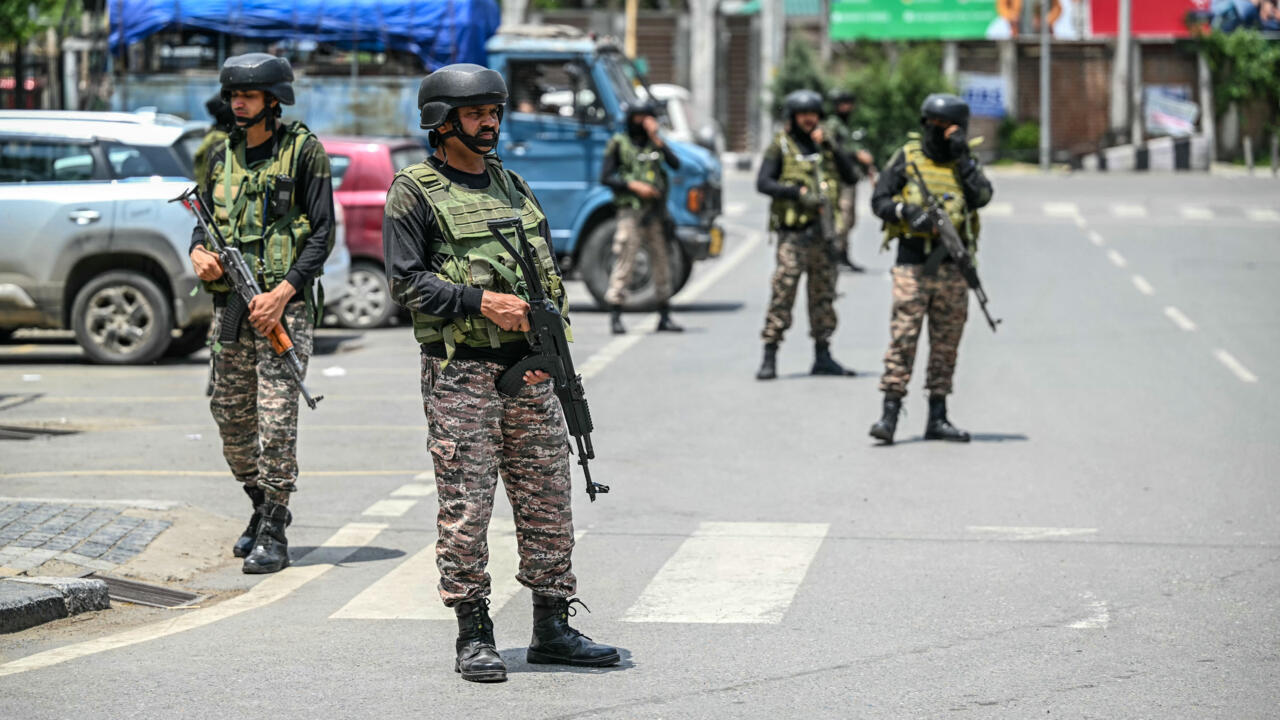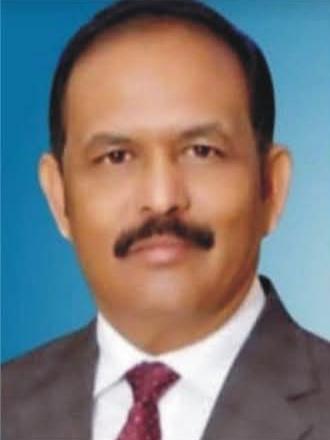The recent conviction of three prominent Kashmiri women leaders—Asiya Andrabi, Fahmeeda Sofi, and Nahida Nasreen—by a National Investig
Terror in Okara. By Dr Pervez Hoodbhoy

On May 11, 2003, Amer Ali, a 60-year old peasant of Chak 4-L of Okara district made his last good-neighbourly visit to the adjoining village, Chak 5-L. As the old man hobbled out of his hosts' house to see what was going on, he was cut down by a hail
As I stood by the blood-spattered earth next to a wall pock-marked with bullets, grim-faced villagers indicated to me the field from where they said the Rangers had ceaselessly machine-gunned the village for over an hour.
A tour around Chak 5-L followed. It is a fairly typical village with visible signs of poverty - mud covered huts, open drains, bare-footed children, and scrawny chickens. Branches of trees felled in the shooting lay all around. Many houses, as well as the village mosque, had bricks broken or chipped by the impact of heavy bullets. They are there for the next visitors to village 5-L to see - but only if they can successfully navigate through the siege imposed on the 70 odd villages in the area.
Roadblocks are everywhere, manned by soldiers with automatic weapons as well the lighter-armed police. Four-wheelers with mounted machine guns prowl menacingly on the dirt roads next to the irrigation canals, raising huge clouds of dust as they move between villages. For all practical purposes, the nearly one million people of Okara are under military occupation.
Why are they doing this? I asked one villager from the crowd that was now swarming around me. "They want to put us on contract to make us pay rent to them, take away our rights to the land, and then throw us out", he replied, "but this land is ours because our forefathers have tilled it and we have nowhere else to go."
And then, as if the floodgates had broken, villagers came to show us wounds on their bodies, some now turning septic. One, who led me aside, broke down sobbing and told a tale that cannot be related here for reasons of propriety. A visit to the neighbouring village, Chak 4-L, showed the situation there to be virtually identical. Broken limbs, hollow faces, sunken eyes, and marks of beatings were in abundant evidence there too.
Appalled by what we had seen, we felt it absolutely necessary to see the point of view of those in authority and therefore drove to the Okara Rangers headquarters, at whose entrance we were stopped by heavily armed guards. After some hesitation they conveyed by telephone our request to meet Colonel Saleem, the head of the Rangers in Okara.
Permission was eventually granted and we drove into the huge complex, spread over many acres, containing residences and offices. The beautifully manicured lawns and flower-beds, gravelled paths, and ornate structures from colonial times stood in stark contrast with the brick and mud hovels we had just left behind.
We were received by all who matter in the Okara administration. Apart from Colonel Saleem, we met Major Tahir Malik who looks after the military aspects and is greatly feared by the villagers, the senior superintendent of police, and the district commissioner. Each had a closely similar point of view to the other. They spoke good English, the meeting was civil and polite, and we were offered tea and sandwiches. But there was to be no meeting of minds.
In response to my question of who killed Amir Ali, the administration officials said that he had been caught in the crossfire between Sindhis and Machis, two groups at loggerheads over some local dispute. However, my offer to transport Amir Ali's decaying corpse, which at the moment was lying in his relatives house in Chak 5-L, to Islamabad for a post-mortem was summarily dismissed.
And where did the torture marks on the bodies of so many villagers come from, of which we now have photographic proof? The answer given was that these had been self-inflicted with the intent of defaming the authorities, or else they were wounds inflicted by one group on the other.
Finding the answers to be less than satisfactory, we sought permission to return to Chak 5-L. After some hesitation this was granted. Negotiating through the roadblocks required further delays, as each confirmed by radio whether we were indeed permitted to visit the village.
In my conversations with the soldiers manning the positions, I learned that they too were disturbed about what they were being asked to do to the Okara villagers but had no real choice. On eventually reaching the village, we conveyed to the villagers what the authorities claimed as the cause of Amir Ali's death. They laughed bitterly and said that there were no Sindhis or Machis in Chak 5-L, much less a fight between them.
The siege of Okara is a blot on Pakistan's collective conscience and must be lifted immediately and unconditionally. Further, the incidents of torture and beatings that have occurred there over the last three years should be immediately investigated at the highest level and the guilty punished.
We cannot plausibly demand that India end the military occupation of Kashmir while employing similar brutal means and tactics at home. Pakistan cannot bear the shock of nearly a million of its own people being dispossessed of the lands they have tilled for over a century. Peasants have no political agenda - land is about livelihood and physical survival. To evict them would be cruel and unjust, and certainly was not what Pakistan was made for. President Musharraf must move quickly to see that this outrage is no more.
You May Also Like
Open Doors, an international organization that provides protection to vulnerable Christians around the world, released a World Watch List in 2025,
Accepting the Lord Jesus Christ and following His commandments is a difficult and arduous path. Every step of the way is fraught with suffering, pe

On demand of our readers, I have decided to release E-Book version of "Trial of Pakistani Christian Nation" on website of PCP which can also be viewed on website of Pakistan Christian Congress www.pakistanchristiancongress.org . You can read chapter wise by clicking tab on left handside of PDF format of E-Book.








